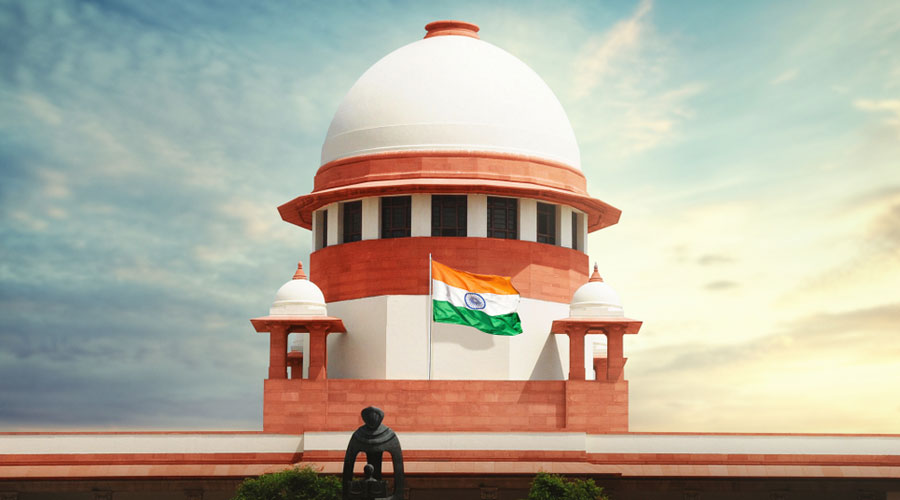The Supreme Court on Thursday said no person should die of hunger “but that is happening, citizens are dying of hunger,” asking the Centre and the states to reach out to farmers and migrants who form the country’s backbone.
“In a welfare society, in our country, two persons are most important — farmers and migrant labourers. Migrants play an important role in building the nation. They cannot be ignored at all,” a bench of Justices M.R. Shah and B.V. Nagarathna told additional solicitor-general K.M. Natraj during a hearing.
“If the needy cannot reach the well, the well has to go to the needy and thirsty people,” Justice Nagarathna remarked while directing both the Centre and the states and Union Territories to register migrants with the e-SHRAM portal so they can partake of government benefits.
The bench observed that the purpose of registration was to facilitate access to welfare schemes and asked the Centre to place before it the data on migrant workers that emerge during the enrolment process.
The court said that if those who are registered do not possess ration cards, the government must immediately make arrangements to provide them food grains at subsidised rates.
“Ultimately in India no citizen should die of hunger. But that is happening, citizens are dying of hunger,” Justice Nagarathna observed. “In villages, they tie their stomach tightly with clothes, drink water and sleep. They tie it so tightly to kill hunger.”
The bench was dealing with a joint application moved by social activists Anjali Bhardwaj, Harsh Mander and Jagdeep Chhokar complaining about lakhs of migrants failing to secure food grains, shelter and other basic amenities amid the pandemic despite the apex court issuing a slew of directions in June 2021.
Advocates Prashant Bhushan and Cherryl D’Souza, appearing for the petitioners, told the court that a large number of migrant workers continued to remain without ration and identity cards, and neither the Centre nor the states had bothered to mitigate their hardships. The case was originally initiated suo motu by the Supreme Court in July 2020 during the first wave of the Covid-19 pandemic and the subsequent lockdown.
The migrant workers were among the sections hardest hit by these. Millions had been forced to make arduous journeys, often on foot, back home.
During Thursday’s hearing, Bhushan told the court that the Centre had failed to undertake any exercise to re-determine coverage under the National Food Security Act (NFSA), as a result of which more than 10 crore people who should have been issued ration cards had been left out of the purview of the food security net.
He cited a government affidavit that stated that the National Census 2021 had been delayed indefinitely on account of the pandemic, and therefore no expansion of coverage was possible till such time the drive was conducted, which was unlikely to happen in the next couple of years.
Bhushan suggested that instead of waiting for the census to be completed, the government could use the official population projections published by the health ministry to expand coverage.
The counsel said that of the 27.95 crore workers registered on the e-SHRAM portal, it must be verified how many possessed ration cards. He said those without cards must be provided rations either by including them under the NFSA or through some other scheme.











